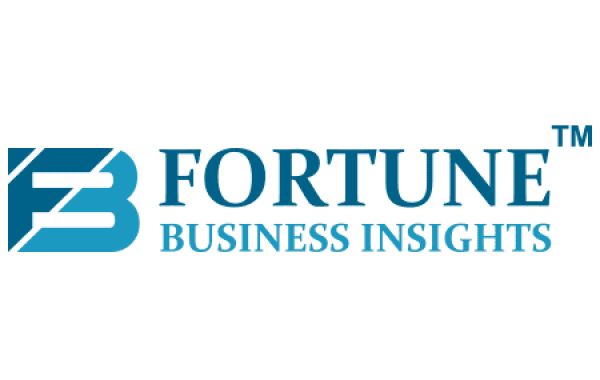According to Fortune Business Insights, the global toys market size is projected to reach USD 230.64 billion by 2028, exhibiting a 7.30% CAGR during the forecast period. The market stood at USD 129.45 billion in 2020. Increasing demand for brain training cubes and educational boards are likely to fuel market growth, shares Fortune Business Insights ™ in its report titled "Toys Market, 2021-2028".
Browse Detailed Summary of Research Report:
https://www.fortunebusinessinsights.com/toys-market-104699
Rising demand for toys that boost mental training such as Rubik cubes, educational boards, wordplay games, and others is expected to boost demand. Increased consumer spending and evolving lifestyles lead to the adoption of high-quality products that help in the development of children's brains. Manufacturers focus on developing play kits aimed at festivals. For example, MGA Entertainment Inc. announced New Rainbow High Fashion Dolls during the autumn season in the U.S.
Manufacturers incorporate gaming items to surprise kids while unboxing packed items. For example, in August 2021, Lego System A/S introduced a sailboat adventure set as a gifting item for its LEGO VIP members. These factors are likely to fuel the market growth during the upcoming years.
COVID-19 Impact
Increased Indoor Activity to Fuel Market Progress
This market is anticipated to develop affirmatively amid the COVID-19 pandemic owing to the increasing demand for play kits and dolls from children. As people are confined in their homes, the demand for big-sized play kits is projected to boost the product's demand drastically. The rising demand for activity and construction-related games is expected to fuel market progress. For example, as per Mattel Inc.'s third quarterly presentation, the company reported a spike of 10% in the third quarter of 2020. Further, the incorporation of reduced capacities and part-time shifts enables producers to mend damages.
Fortune Business Insights™ lists out all the toys market companies that are presently striving to reduce the impact of Covid-19 pandemic on the market:
- Lego System A/S (Billund, Denmark)
- Hasbro Inc. (Rhode Island,U.S.)
- Mattel Inc. (California, U.S.)
- Ravensburger Holding GmbH Co. KG (Ravensburg, Germany)
- Spin Master (Toronto, Canada)
- MGA Entertainment Inc. (California, U.S.)
- PAI Partners (Paris, France)
- Nintendo Co. Ltd. (Kyoto, Japan)
- Radio Flyer (Illinois, U.S.)
- L. Lindsay Company (New South Wales, Australia)
- Artsana Group (Grandate, Italy)
- K’Nex Industries Inc. (Pennsylvania, U.S.)
Highlights of the Report
The report provides a detailed analysis of the top segments and the latest trends in the market. It expansively debates the driving as well as constraining aspects and the impact of COVID-19 on the market. Additionally, it observes the regional developments and the approaches commenced by the crucial players present in the market.
Drivers and Restraints
Manufacturers Focus on Social Media Marketing to Propel Industry Progress
Major toy manufacturers focus on social media promotion to boost the product's adoption. This strategy enables manufacturers to improve their brand image and boost the product's adoption. Companies invest heavily in partnership strategies to improve their brand image. For example, Zuru and Fanbyted engaged in a partnership with each other to promote Zuru's products on social media in September 2020. This strategy is expected to boost the company's brand image. Furthermore, manufacturers aim at incorporating multiple colors in the product to attract pre-school children to their products and boost the product's demand drastically. Additionally, manufacturers aim at providing educational games such as computing kits, remote-controlled cars, and cubetto dash robots. As per the information provided by the Toy Association, U.S. youth electronic game sales touched USD 470 million in 2020. It was a 1.8% rise compared to the previous year. This factor is expected to boost the market growth.
However, rising smartphone sales and the emergence of online games are expected to hinder market progress.
Segments
By product type, the market is segmented into games puzzles, infant and preschool toys, dolls, outdoor and sports toys, building and construction sets, and others. Based on age group, it is classified into 18+ years, 12-18 years, 5-12 years, 3-5 years, and 0-3 years. By distribution channel, it is categorized into offline and online. Geographically, the market is grouped into North America, Europe, Asia Pacific, and the rest of the world.
Regional Insights
Increased Spending on Toys Entertainment Devices to Boost Market Growth in North America
North America is projected to dominate the toys market share because of the increased spending on entertainment and play kits. The region registered a growth of USD 43.76 billion in 2020. Evolving consumer preferences and increased spending on the product. As per the U.S. Bureau of Labor Statistics data, the spending on entertainment-related devices touched USD 3.05 million in the U.S. These factors are probable to boost the market growth.
In Asia Pacific, government initiatives for the development of local toy companies are projected to boost industry progress in Japan, India, and China. For example, the Indian government incorporated the Production Linked Incentive (PLI) scheme for the development of local manufacturing firms.
In Europe, the presence of a developed import sector is expected to boost market development in Germany and the U.K. As a result, developed import facilities are expected to boost the product's distribution. These factors are likely to propel industry progress.
Rеаѕоnѕ to Get thіѕ Rероrt:
- A qualitative and quantitative market study based on segmentation that includes both economic and non-economic factors
- Data on market value for each section and sub-segment
- Indicates the region and market segment that is likely to expand the fastest and dominate the market.
- The consumption of the product/service in each region is highlighted, as are the factors affecting the market within each region.
- The competitive landscape includes the top players' market rankings, as well as new service/product launches, collaborations, company expansions, and acquisitions made by the companies profiled in the last few years.
Competitive Landscape
Crucial Companies Focus on Partnership Strategies to Enhance Brand Recognition
The vital companies functioning in the market focus heavily on engaging in partnership with crucial players to boost their brand image. For example, Hasbro Inc. purchased Entertainment One Inc. for USD 3,800 million in February 2021. This strategy enabled the company to produce over 30 film and television projects. This strategy enabled companies to develop their brand image. Further, major manufacturers focus on developing advanced production machinery to improve product quality, reduce labor costs, enhance productivity, boost operational efficiency and achieve organizational goals.
Industry Development
- October 2020: Spin Master Corp. acquired a cube games company named Rubik’s Brands Ltd. This acquisition helps the company to compete with major competitors such as Mattel Inc. and Hasbro Inc. and enter the cube games market.
Frequently Asked Questions (FAQs):
- How big is the toys industry?
Toys market size is projected to reach USD 230.64 billion by 2028, exhibiting a 7.30% CAGR during the forecast period. The market stood at USD 129.45 billion in 2020.
- Who are the key players in the Toys Market?
Lego System A/S (Billund, Denmark), Hasbro Inc. (Rhode Island,U.S.), Mattel Inc. (California, U.S.), Ravensburger Holding GmbH Co. KG (Ravensburg, Germany), Spin Master (Toronto, Canada), MGA Entertainment Inc. (California, U.S.), PAI Partners (Paris, France), Nintendo Co. Ltd. (Kyoto, Japan), Radio Flyer (Illinois, U.S.), L. Lindsay Company (New South Wales, Australia), Artsana Group (Grandate, Italy), K’Nex Industries Inc. (Pennsylvania, U.S.)
- What are Key Factors Raising the Market?
Manufacturers Focus on Social Media Marketing to Propel Industry Progress








